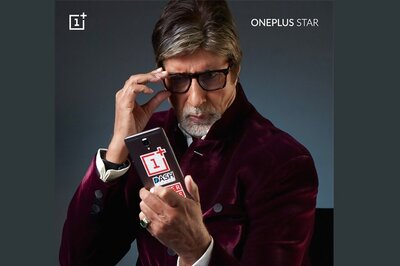
views
From a certain angle, RSS sarsanghchalak 'P P' Mohan Rao Bhagwat bears a resemblance to the organization's founder, Dr Keshav Baliram Hedgewar. In his style of functioning, though, he displays an affinity with another of his predecessors, Madhukar Dattatreya 'Balasaheb' Deoras.
During the RSS lecture series titled “Future of Bharat: An RSS Perspective”, the organization's first effort at large-scale public outreach, he dwelt at length on the life and times of Dr Hedgewar. But when it came to MS 'Guruji' Golwalker, who helmed the RSS for more than three decades, Bhagwat disowned portions of his 'Bunch of Thoughts' which perceive Muslims and Christians as potential threats to internal security.
The move was both tactical and necessary. Golwalker had critiqued the Constitution of India, whereas Bhagwat's speech of September 17 binds the RSS to the Constitution and the values it represents. The sarsanghchalak categorically committed the RSS to inclusivity and non-sectarianism and signalled a readiness to grapple with and resolve contentious issues of gender and ethno-nationalism.
Bhagwat spoke out against gau-rakshaks and “adharma in the name of dharma” and deftly side-stepped landmines like the SC/ST Act and reservations. He even took a nuanced approach towards LGBTQ, saying that they were part of society and ways would have to be found to accommodate them.
He sought to give the lie to the image of a shadowy organization mired in the past and touting a xenophobic and retrogressive agenda. Thus, Golwalker's writings are out of sync with Bhagwat's thrust towards pluralism. Although Golwalker is revered in the sangh parivar as a saintly philosopher, he gives detractors a club with which to clobber the RSS and so, has been consicously downplayed.
Bhagwat is clearly more inclined towards Deoras. Unlike Golwalker, who balked at even a tangential involvement in politics and behaved like a place-holder, Deoras felt the RSS had no option but to step outside the shakha and engage in public policy activism. Under him, RSS frontal organizations like the Vanvasi Kalyan Ashram, Sewa Bharti, Saraswati Shishu Mandirs, etc gained in reach and strength. He openly denounced caste schisms and backed the Samajik Samrastha (social harmony) campaign, just as Bhagwat does today.
In choosing to let his cadres take the field during Emergency, Deoras ended the isolation of the RSS and brought it into the political mainstream. The cadre had a brief taste of state power during the short-lived Janta regime and by 1980, was ready to strike out on its own.
The BJP espoused Gandhian socialism and positive secularism with Deoras' blessings. He did not see state power as a bad thing and understood that if the BJP was to be a national party, it would have to tom-tom its commitment to the Constitution. That did not preclude a pragmatic approach to mass mobilization, as evidenced by the Ram Janambhoomi Movement. 'Social engineering' helped the BJP expand its footprint among the OBCs and take power in the centre and states. The approach towards the stated RSS objective of social transformation was now both bottom-up and top-down.
Under Bhagwat, the sangh parivar has become increasingly politicized, regardless of the 'arms-length' principle he frequently touts. The line between public policy and political activism is a thin one and in the case of the RSS, is often breached.
Since Deoras, the RSS has adapted and evolved. From time to time, thinkers such as Bhaurao Deoras (brother to Balasaheb), Morepant Pingle, Dattopant Thengdi, Nanaji Deshmukh and K N Govindacharya introduced new ideas. Not without resistance and not always with complete success, but enough to prevent the RSS from becoming moribund.
This inherent flexibility allowed the RSS to overcome its deeply-inculcated abhorrence of the limelight and embrace the Age of Informationalism. Engagement with the mass media deepened post-NDA I, with a young pracharak from Andhra Pradesh, Ram Madhav, becoming the de facto voice of the RSS. No longer did the RSS respond to attacks in the media with deafening silence.
Once that Rubicon had been crossed, it took to social media or the Age of Apps. Inevitably, extremist elements claiming to represent the 'RSS view' emerged, giving credence to Congress-Left accusations of fascist and communal underpinnings. Speaking out against such elements became necessary. The RSS leadership became more vocal, countering charges of “intolerance” and “authoritarianism”.
A candid, get-to-know-the RSS exercize was the logical next step. Analysts have speculated that Bhagwat's event was a response to Congress president Rahul Gandhi's recent characterization of the RSS as the Indian version of the 'Muslim Brotherhood', an Islamist group that combines social work with political activism and peddles peace while allegedly supporting terrorist activities.
To portray the outreach effort as a defensive exercize is facile. Given that the Congress-Left routinely dubs the RSS as fascist, divisive and communal, Rahul's grandstanding in London is unlikely to have disturbed the sangh parivar.
Through his speeches, Bhagwat has sought to change the terms of engagement with the world at large. The RSS has evolved in terms of outlook, character and functioning and wants to clarify where it stands, here and now.
The big takeaway from the event is the organization's stated willingness to engage with and accommodate all interest groups. He may not have adequately addressed vital issues, such as gender parity, but at least he opened the door. In these troubled times, this is more than welcome.
(Author is a senior journalist. Views are personal)















Comments
0 comment